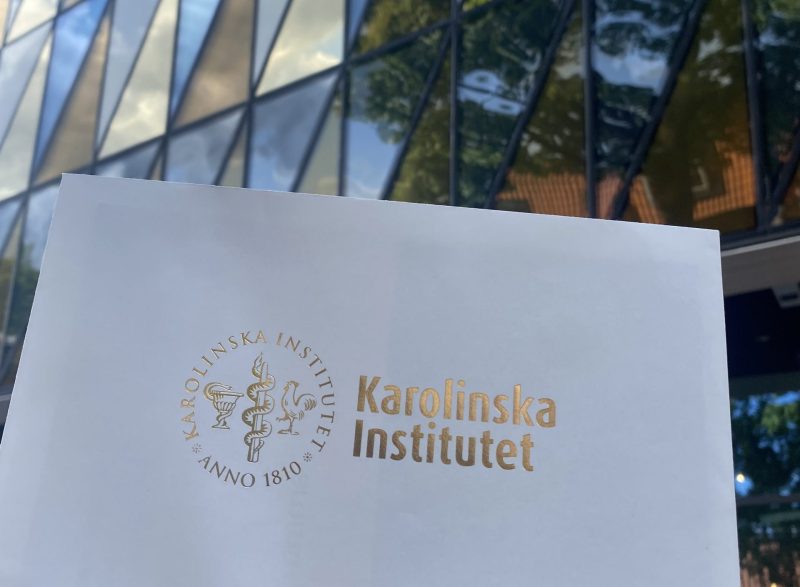
A final reflection of my time at KI
This blog will consist of summarizing an “exit survey”-styled questionnaire sent out to Public Health Sciences (PHS) graduates of 2025, and my personal reflections of the last two years. I posted a very short questionnaire to my former classmates on their future plans after the programme in late August. Here is how they responded! I end with some final reflections on my time at KI as a student and a blogger. It’s also my final blog and I don’t know how to feel yet, so please bear with me if some things sound cheesy!
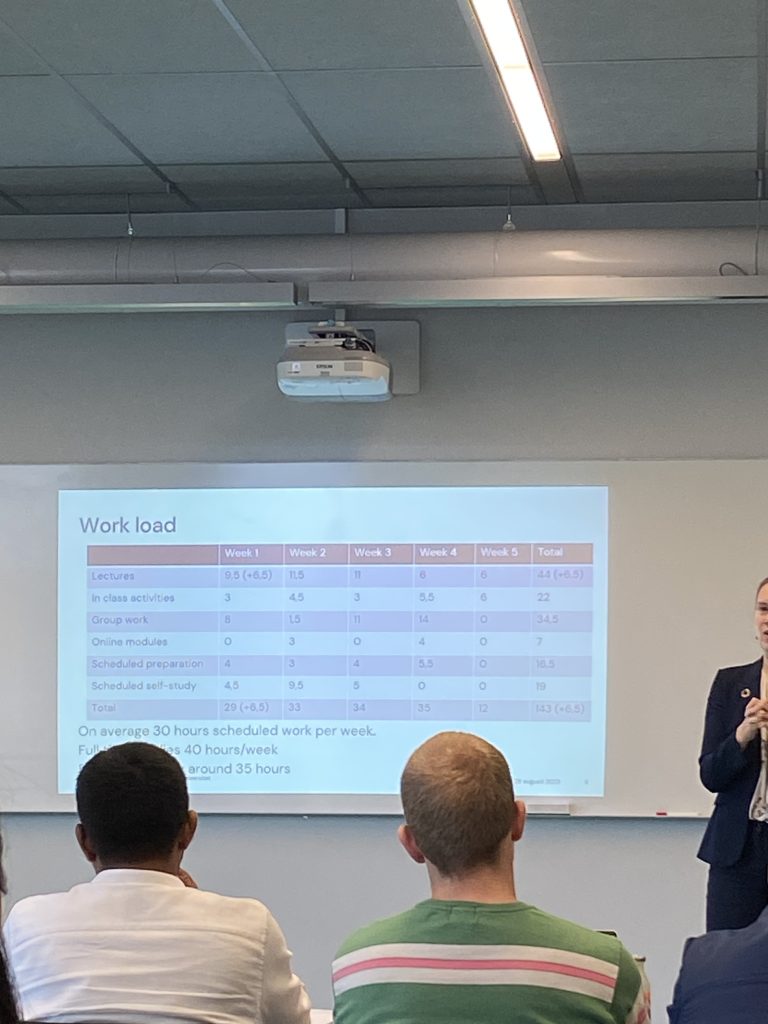
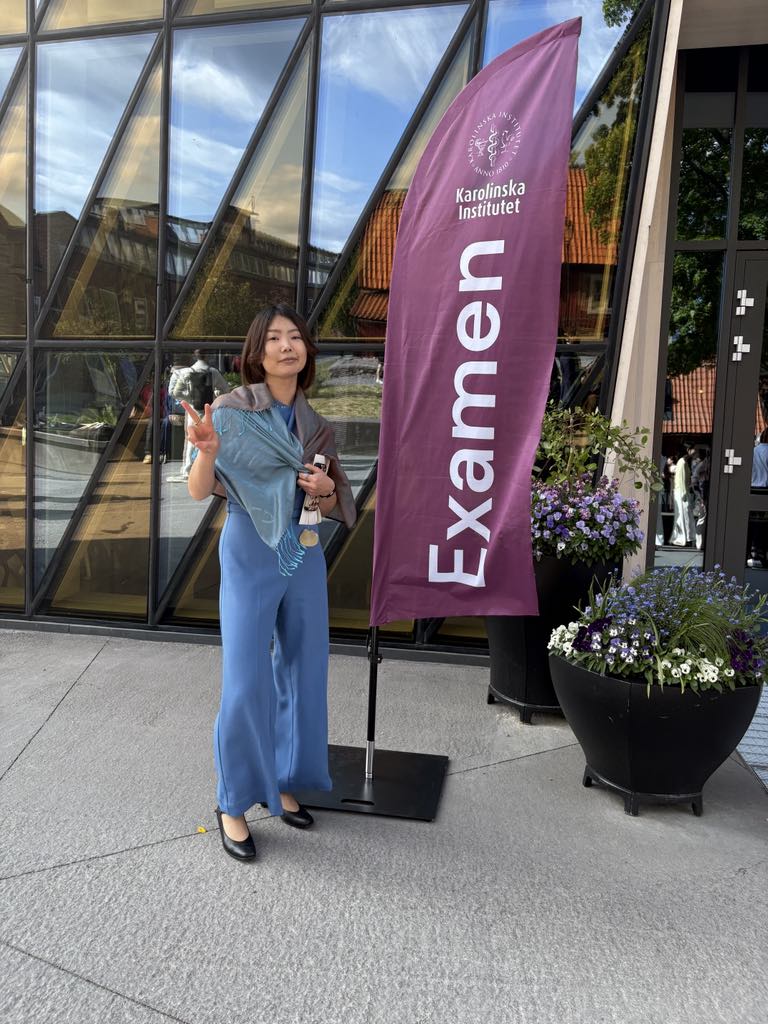
Disclaimer: Please note that these responses came from an unofficial survey administered to a unique cohort enrolled in the PHS programme from 2023 to 2025. It is not a reflection of how these trends can look like for future cohorts. Neither the questions or results have by no means been officially endorsed by KI.
Will you stay in Sweden?
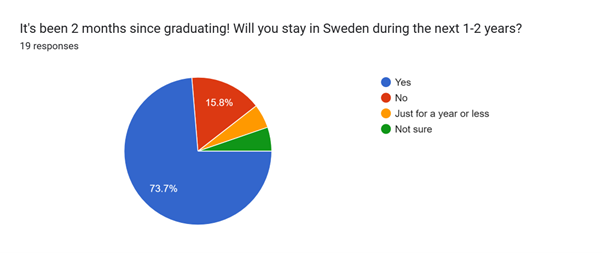
Based on the survey, it looks like almost 3/4 of the class are staying in Sweden for at least 1-2 years. For those who have left Sweden already, we had quite a few emotional good-byes with our classmates after graduation. I don’t think parting ways ever gets easy! Selfishly, this is why I am happy many of us plan on staying in Sweden after the programme. This provides us the possibility to become colleagues, and to continue grow alongside each other as friends and as professionals. I think it’s also just relieving to have a stable community of friends by your side, especially given the big “change” in lifestyle after completing our education.
What’s next?
More than a third of the respondents will be starting their Ph.D journeys this fall (congratulations!), about 20% will work as research assistants, and another 16% or so finding other jobs in Sweden (image 2). From what I have heard, many Ph.D’s and research assistants are based at KI’s departments. These departments include the Department of Medicine, Environmental Medicine, and Global Public Health among others.
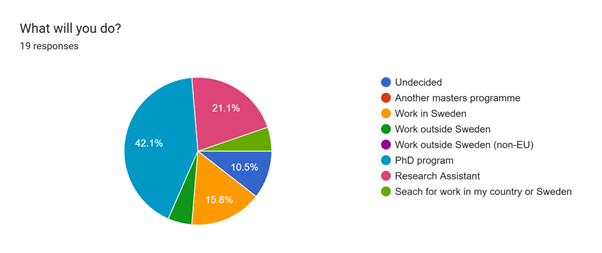
Interestingly, more than half of the respondents staying in academia. I definitely think our programme’s focus on research methodology contributed to our deepened interest in this career trajectory! We also see classmates going into the workfield as educators, in (public) health organizations, and healthcare staff. I think it’s safe to say that our programme also equipped us to be successful outside of academia as well.
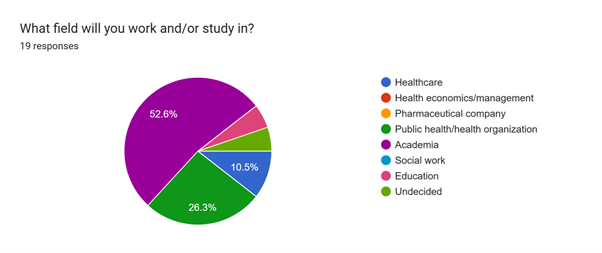
Quite a few of the respondents are also undecided in what path they want to take. I think I attribute this to three main reasons. Firstly, the job market is not doing too well in Sweden, with many jobs requiring Swedish fluency. Academia is no exception, as there aren’t too many Ph.D postings for epidemiologists just yet. I believe some factors are just beyond our control. I don’t think the “funemployment” era of our lives will last too long though!
Secondly, committing to a career takes alot of careful thought and consideration. Even if want to pursue a doctorate programme for instance, we have to keep in mind that it is a long-term commitment. You have to genuinely enjoy the topic and your work responsibilities. I think quite a few of us are using the time to evaluate what it is that we want to accomplish with our newly earned degree.
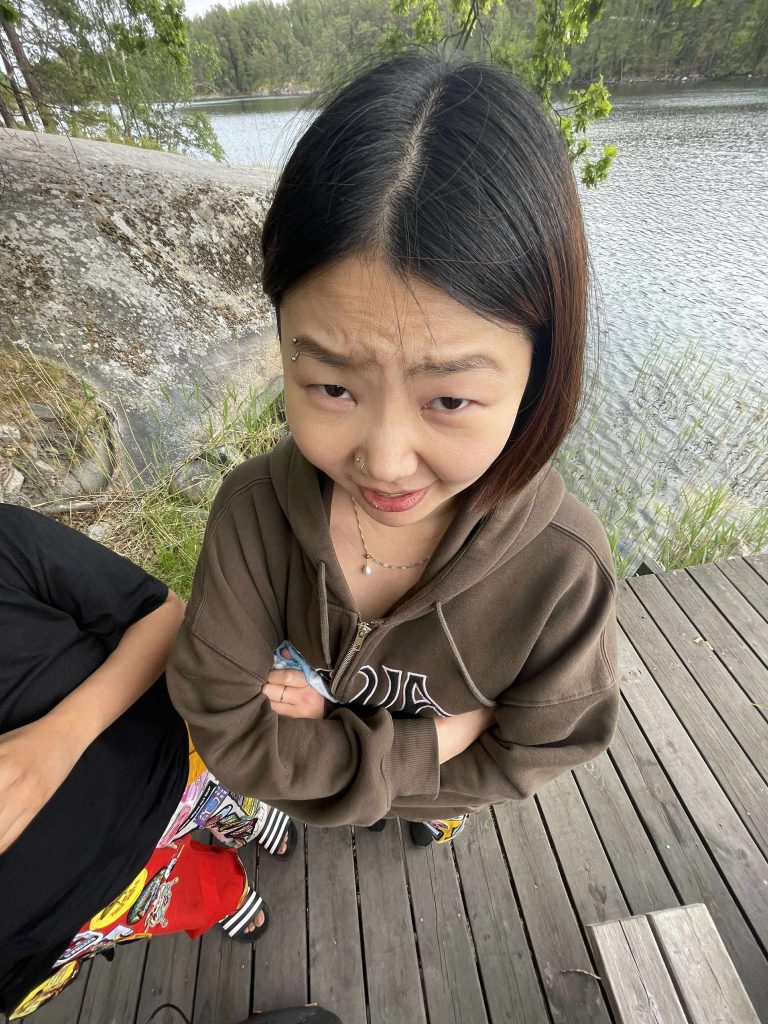
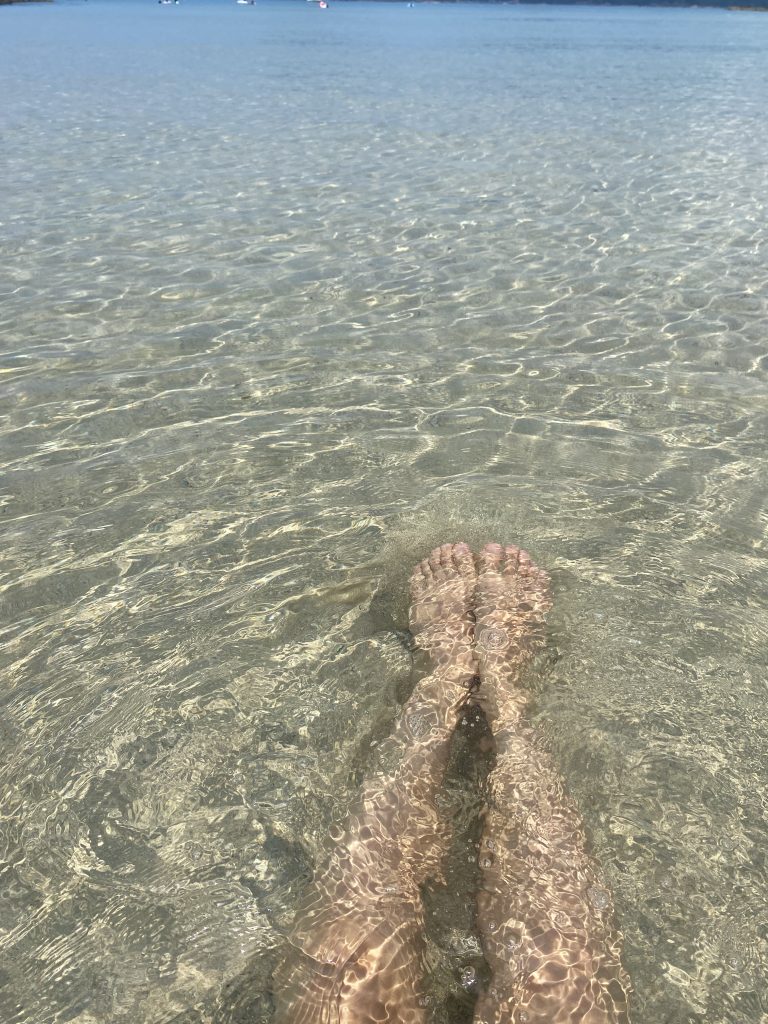
Thirdly, I have a feeling we are still recovering from the programme. Deadlines, thesis defenses, and graduation, were all stacked consecutively one after another. We also had some classmates working in the summer, including on manuscripts to be submitted for journals. For others with familial duties, summer may have consisted of attending to their children, which while fun, demands alot of energy. Naturally, your body catches up to all the built-up fatigue from this experience. I think it’s sustainable to take a break for those who need it, especially if you have jumped straight into the masters programme from another education.
What was your favorite part of the PHS programme?
A common theme found in the responses revolved around friends made in the programme (classmates that were kind, global, and fun), as well as the learning style (balance between self-study and groupwork) and research opportunities at KI.
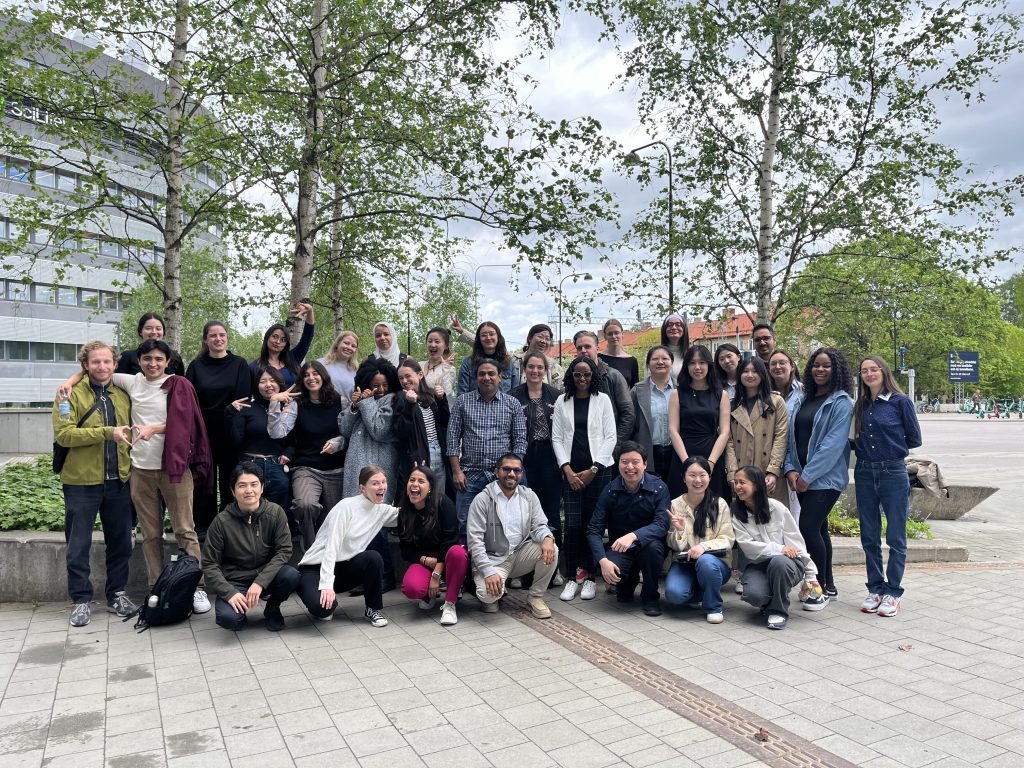
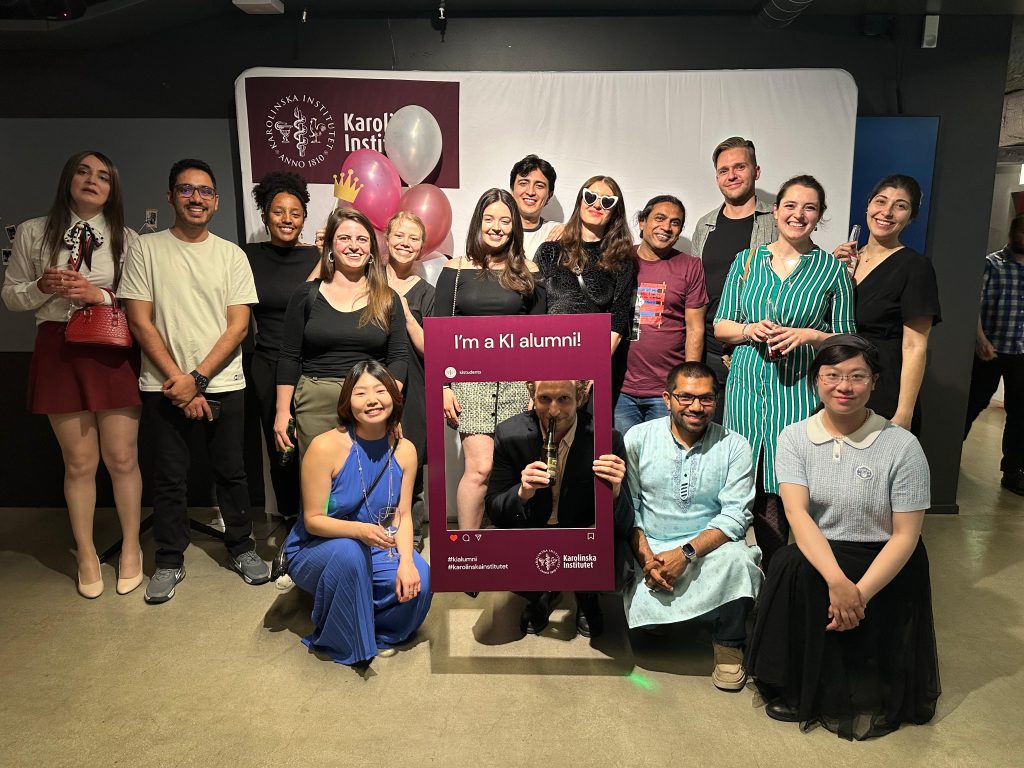
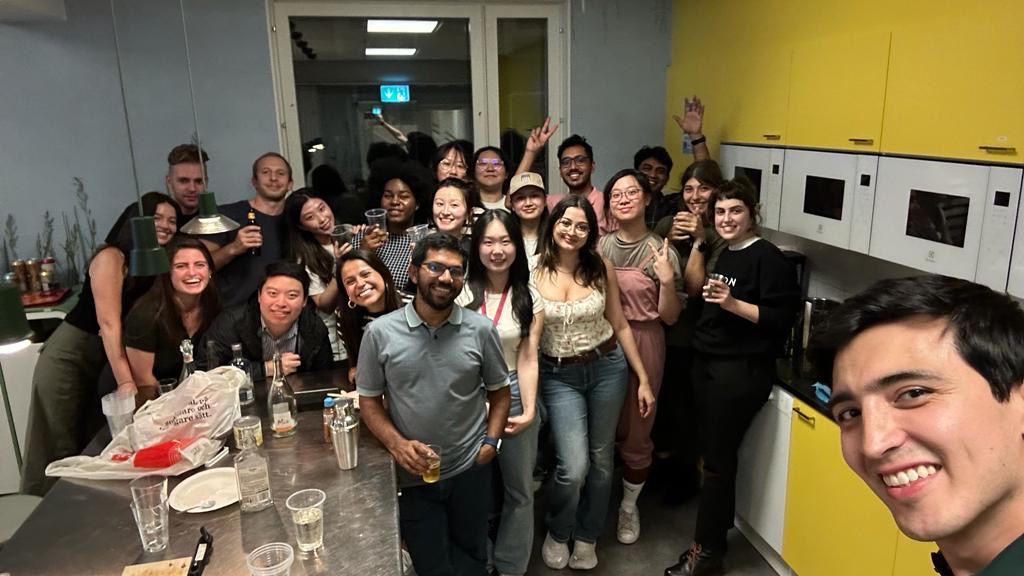
As always I am very biased when it comes to our ’23-25 cohort, and say that we were an especially tight knit group all throughout the programme. During our first year we organized monthly hangouts at the end of each course, and we had biweekly afterworks scheduled for our thesis semester. I think many of us saw each other frequently, and made lifelong connections with each other. Similar to the sentiments of the responses, I also felt like my classmates were the highlight of the programme!
Looking back at my time as a Digital Ambassador
Working as a team
I’m very happy to have gained good friends from different programmes through the DA team. During both years as a DA, I felt very grateful to have exchanged ideas, inspired each other, and spent time with each other regularly. The team dynamic was vastly different from year one and two, and I am grateful to have experience and contribute to both! I think the DA team created a valuable opportunity to become more cooperative and understanding of colleagues with different (or similar) backgrounds.
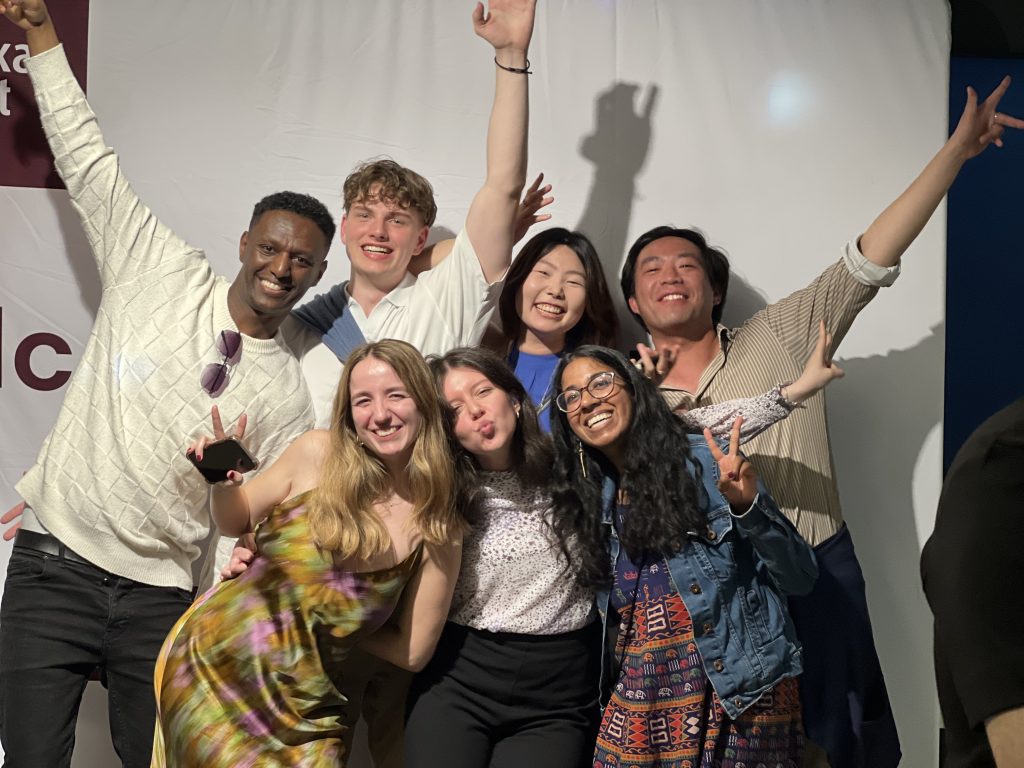
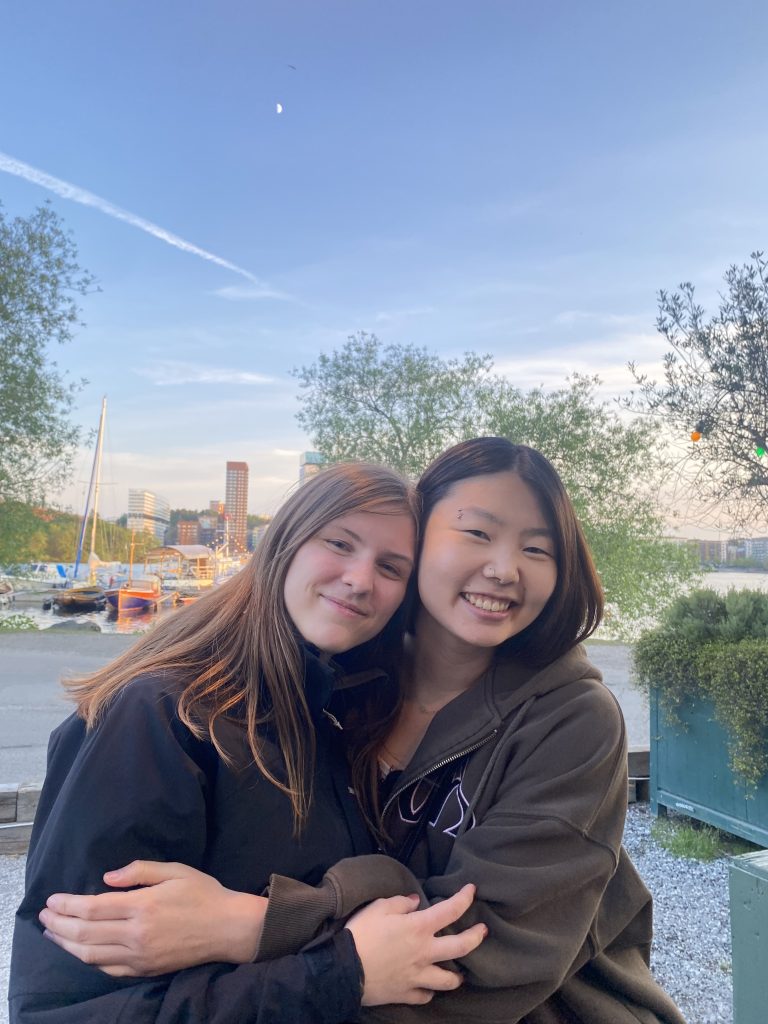
When we got together, it really felt like a team. This was a nice contrast to our rather independent roles as bloggers. I also enjoyed getting to do small “campus tours” with prospective students, and to offer them practical advice or information about KI from my personal perspective.
The beauty and challenges of blogging
Blogging, to me, not only felt like a challenge, but at times very therapeutic. I would use my first drafts as almost pure journaling, writing freely what I thought and felt. This has been a very reflective process which sometimes allowed for some vulnerability. The writing process taught me things I did not know about myself. It was also really enjoyable to engage in writing that wasn’t targeting the scientific community. The last thing I wanted to do during my time as a student was to casually write about p-values and risk ratios in my free time!
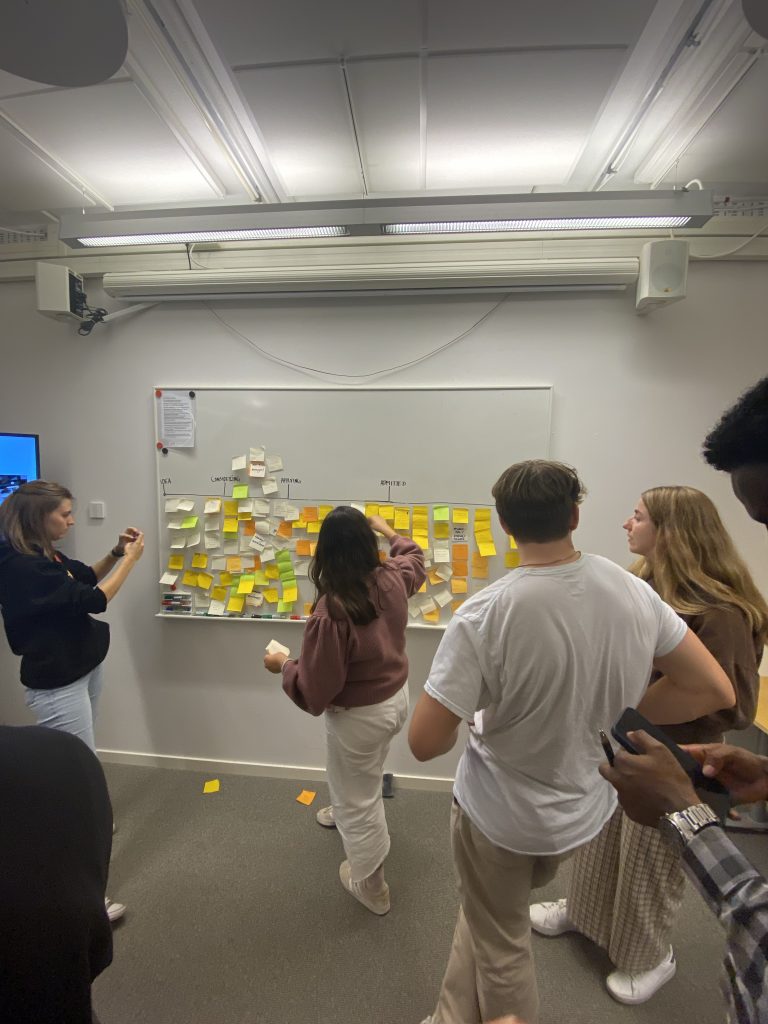
On the otherhand, it was challenging when creating appropriate content with the right intent and publishing them at the right time. For instance, I felt really eager to publish something useful and relevant during application season. I would even get stressed trying to think about content that would “actually” be of value, and to whom it would be most valuable to. Other times, I simply had no motivation. A typical case of writer’s block if you will. But once in a few blog posts, the content would flow effortlessly. These blogs often entailed me sharing personal experiences or sentiments.
Overall it increased my appreciation of writers and bloggers a whole lot more. There are so many elements that has to be considered to target and engage your audience. I feel like I barely scratched the surface of this “art form”.
Some final reflections
What’s next?
I fear this is such a scary and slightly triggering question for many. For now, I am applying for PhD positions while taking free-standing courses! I have spent the summer working with my supervisor to produce a manuscript from my thesis for publishing, polishing my CV, and interviewing for PhD positions at KI. Although I am not committed to a position right now, the application and interview processes have been valuable opportunities to improve my scientific language, both verbal and written. For the next few years, I plan on committing to stay in academia and focus on epidemiology.
What would I tell myself two years ago?
Appreciate every minute of the programme! It flies by after the first two months, so tell your coursemates that you appreciate them often! In class, make it a habit to formulate more questions and to take intentional notes. More is not always better. I would especially ask more questions on genetic epidemiology, as I felt like we got such little time to explore this topic.
I would also tell myself to get more feedback from course leaders and lecturers. More specifically, feedback on improvements that could have been made for certain written assignments. I believe many of the written assignments helped prepare us for the thesis. Therefore, developing these skills earlier on, especially if you are not used to academic writing, could be beneficial.
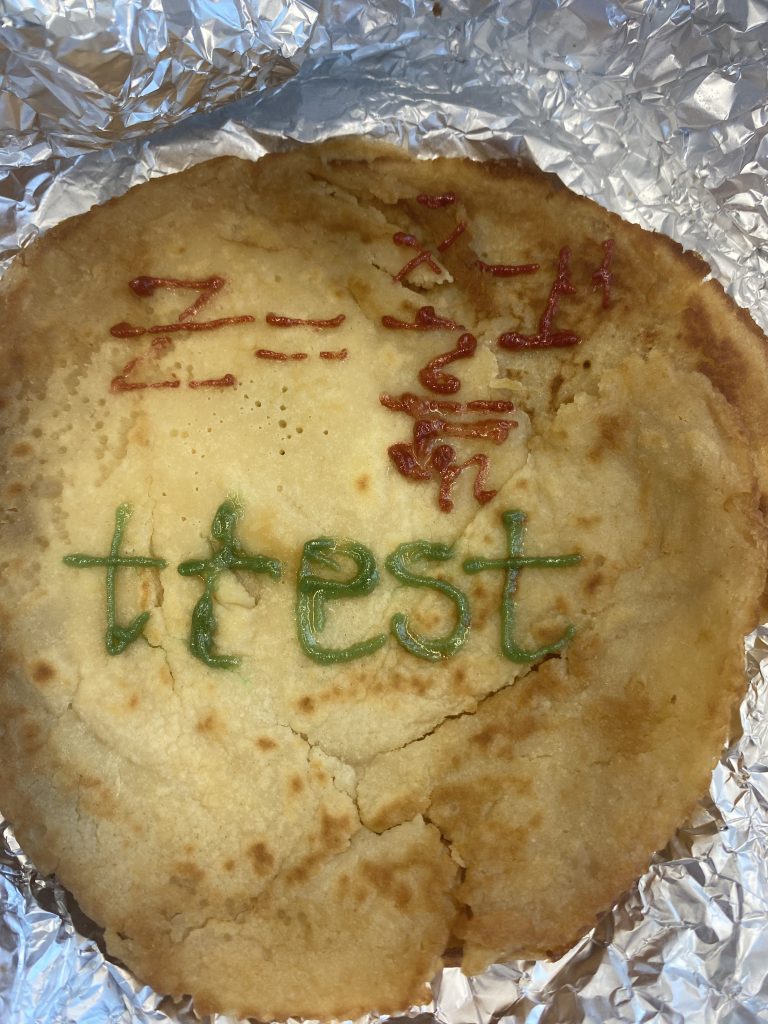

Also, stay open-minded! This applies to research topics and staying in academia. I was initially ready to say goodbye to academia after my Masters. Yet here I am applying for Ph.D positions. Also, my initial research interests did not include cancer, metabolic disorders, nor psychiatric disorders, which I wrote my thesis on. You simply never know what you might be interested in until some unexpected encounters with these topics!
See you later!

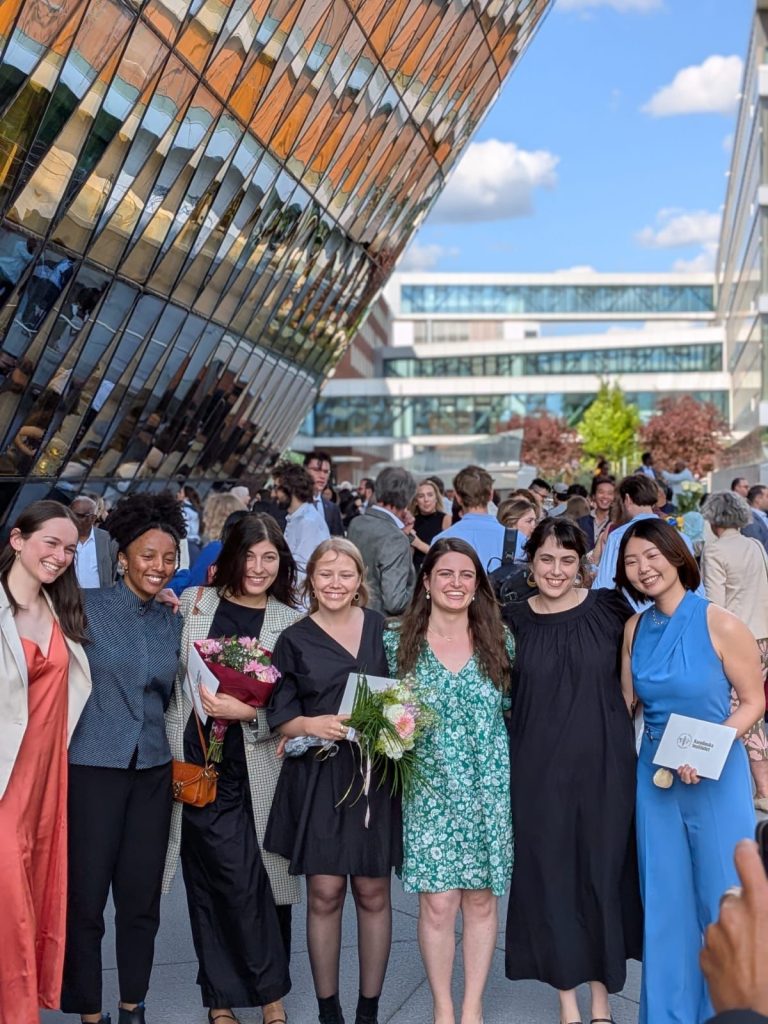
The last two years as a blogger for the DA team has been very memorable. It feels a little bittersweet to say goodbye, but I see it more as a see you later. I’d like to extend my gratitude to the entire DA team, for anyone that has read my blogs, and to my friends. Best of luck to the incoming team, and to all prospective/new students at KI! Word on the street is that I will probably be around KI campus, so come say hi if you see me!

Risa-Public Health Sciences
Hej! I am Risa, a Japanese Master's student in Public Health Sciences starting my studies in 2023 at Karolinska Institutet. Having been interested in the multidisciplinary, globally applicative, and cooperative nature of the public health field, paired with my familiarity with KI’s global reputation, I’ve always had the desire to study at KI. I enjoy curating playlists, petting cats, and going on scenic walks around Stockholm in my free time.

0 comments